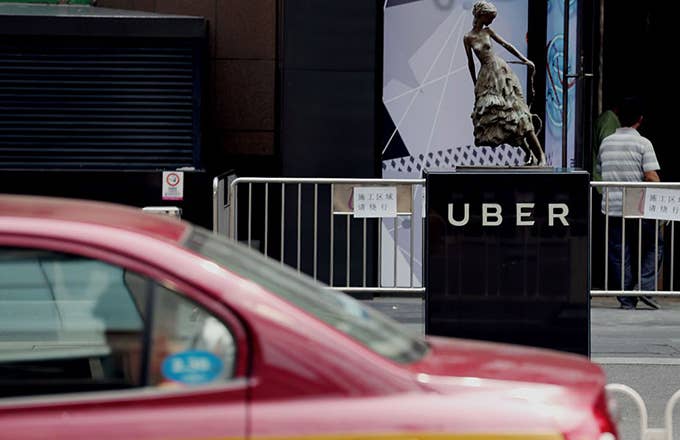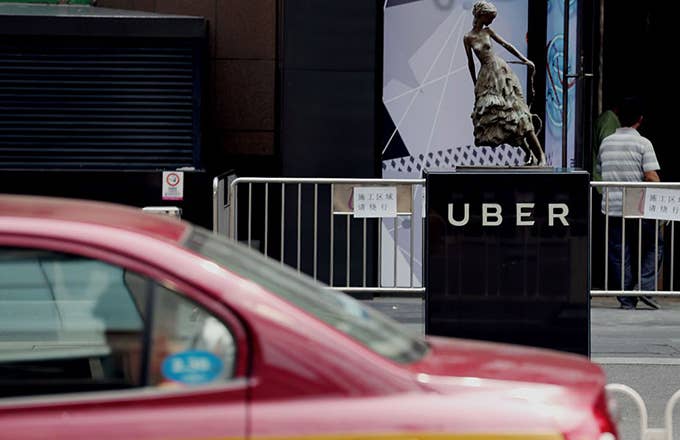
A former Uber engineer has shared an alarming account in which she accuses the company’s management of dismissing multiple reports of sexual harassment.
On Sunday, Susan. J Fowler published her story—which she describes as “strange, fascinating, and slightly horrifying”—on her blog, explaining why she decided to leave Uber after about a year. Fowler, who was hired as a site reliability engineer, claims she began experiencing problems after one day on the job, when her manager began sending her inappropriate messages about his sex life.
On my first official day rotating on the team, my new manager sent me a string of messages over company chat. He was in an open relationship, he said, and his girlfriend was having an easy time finding new partners but he wasn't. He was trying to stay out of trouble at work, he said, but he couldn't help getting in trouble, because he was looking for women to have sex with. It was clear that he was trying to get me to have sex with him, and it was so clearly out of line that I immediately took screenshots of these chat messages and reported him to HR.
But HR did not handle the situation like Fowler expected. She said HR agreed that the messages clearly qualified as sexual harassment; however, they did not think it was necessary to give the manager anything more than a warning. Fowler claims management said they didn’t feel comfortable punishing the manager because it was his first offense and he "was a high performer.”
Fowler was reportedly told she could move to another team to avoid the manager, or she could continue working under his lead. She admits she wanted to stay with her original team because she had expertise in the project they were struggling with. But HR warned her that the manager would likely give her a bad performance review, and there was nothing anyone could do about it.
One HR rep even explicitly told me that it wouldn't be retaliation if I received a negative review later because I had been "given an option". I tried to escalate the situation but got nowhere with either HR or with my own management chain (who continued to insist that they had given him a stern-talking to and didn't want to ruin his career over his "first offense").
Fowler later discovered the “first offense” argument wasn’t true. After meeting more female engineers, she began hearing stories that were similar to her experience. Some reports involved the same manager she had previously reported.
Myself and a few of the women who had reported him in the past decided to all schedule meetings with HR to insist that something be done. In my meeting, the rep I spoke with told me that he had never been reported before, he had only ever committed one offense (in his chats with me), and that none of the other women who they met with had anything bad to say about him, so no further action could or would be taken. It was such a blatant lie that there was really nothing I could do. There was nothing any of us could do. We all gave up on Uber HR and our managers after that.
Fowler said the manager eventually left the company; though she’s convinced he was terminated for an unknown reason.
Fowler’s problems didn’t end there, unfortunately. She also writes about a hostile culture at Uber, in which managers were shamelessly announcing their intentions to sabotage each other. This, of course, resulted in widespread fear and paranoia, as well as chaos.
[E]ngineers began transferring to the less chaotic engineering organizations. Once I had finished up my projects and saw that things weren't going to change, I also requested a transfer. I met all of the qualifications for transferring—I had managers who wanted me on their teams, and I had a perfect performance score—so I didn't see how anything could go wrong. And then my transfer was blocked.
Fowler claims her request was denied because the higher-ups said she “had undocumented performance problems.” But she pointed out all her reviews had perfect scores and she never received a complaint. Managers later told her that "performance problems aren't always something that has to do with work, but sometimes can be about things outside of work or your personal life." So she waited for the next performance review, which was positive, as usual. When she attempted to transfer again, her review was changed and was no longer eligible.
When I asked management why my review had been changed after the fact (and why hadn't they let me know that they'd changed it?), they said that I didn't show any signs of an upward career trajectory. I pointed out that I was publishing a book with O'Reilly, speaking at major tech conferences, and doing all of the things that you're supposed to do to have an "upward career trajectory", but they said it didn't matter and I needed to prove myself as an engineer. I was stuck where I was.
Fowler later requested for her review to be changed back, but was told it wasn’t necessary because it would have no real impact on her life. But it did. Uber was sponsoring her graduate studies at Stanford on the condition she maintained positive performance reviews and scores. Because of the change, she was no longer eligible for the sponsorship program.
So why didn’t they just accept her request and allow her to transfer? Well, Fowler said that keeping her on the team made her manager look good.
I overheard him boasting to the rest of the team that even though the rest of the teams were losing their women engineers left and right, he still had some on his team. When I joined Uber, the organization I was part of was over 25% women. By the time I was trying to transfer to another eng organization, this number had dropped down to less than 6%. Women were transferring out of the organization, and those who couldn't transfer were quitting or preparing to quit. There were two major reasons for this: there was the organizational chaos, and there was also the sexism within the organization. When I asked our director at an org all-hands about what was being done about the dwindling numbers of women in the org compared to the rest of the company, his reply was, in a nutshell, that the women of Uber just needed to step up and be better engineers.
Fowler also points to other instances in which she and other women experienced sexism. Each of those cases were reported, but were ultimately ignored by HR.
Complex reached out to Uber for comment. The company's CEO Travis Kalanick said he was aware of the recent allegations and that it will be investigated.
"I have just read Susan Fowler's blog. What she describes is abhorrent and against everything Uber stands for and believes in. It's the first time this has come to my attention so I have instructed Liane Hornsey our new Chief Human Resources Officer to conduct an urgent investigation into these allegations,” he said in a statement issued to Complex. "We seek to make Uber a just workplace FOR EVERYONE and there can be absolutely no place for this kind of behavior at Uber – and anyone who behaves this way or thinks this is OK will be fired.”


